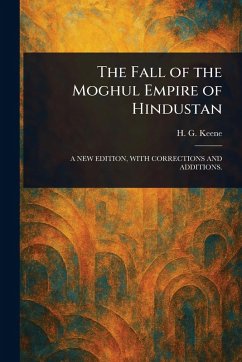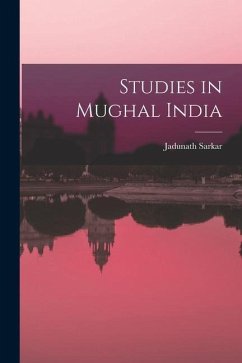
Indian Frontier Policy; an Historical Sketch
Versandkostenfrei!
Versandfertig in über 4 Wochen
14,99 €
inkl. MwSt.
Weitere Ausgaben:

PAYBACK Punkte
7 °P sammeln!
"Indian Frontier Policy" by General Sir John Ayde offers a vital historical perspective on the complex geopolitical landscape of British India and its relationship with neighboring territories. This meticulously prepared edition examines the key strategies and challenges inherent in maintaining order and security along the Indian frontier, particularly in the context of the Afghan Wars. A significant contribution to military history, the book delves into the intricacies of British Empire frontier policy and the motivations behind military actions in the region. It provides crucial insight into...
"Indian Frontier Policy" by General Sir John Ayde offers a vital historical perspective on the complex geopolitical landscape of British India and its relationship with neighboring territories. This meticulously prepared edition examines the key strategies and challenges inherent in maintaining order and security along the Indian frontier, particularly in the context of the Afghan Wars. A significant contribution to military history, the book delves into the intricacies of British Empire frontier policy and the motivations behind military actions in the region. It provides crucial insight into the political and military dynamics that shaped the region for decades. Students and enthusiasts of South Asian history, military strategy, and the British Empire will find this an invaluable resource for understanding the historical context of the Afghan Wars and the broader implications of frontier administration. This book remains relevant for anyone seeking to understand the long-lasting impacts of historical military policy. This work has been selected by scholars as being culturally important, and is part of the knowledge base of civilization as we know it. This work is in the public domain in the United States of America, and possibly other nations. Within the United States, you may freely copy and distribute this work, as no entity (individual or corporate) has a copyright on the body of the work. Scholars believe, and we concur, that this work is important enough to be preserved, reproduced, and made generally available to the public. We appreciate your support of the preservation process, and thank you for being an important part of keeping this knowledge alive and relevant.














